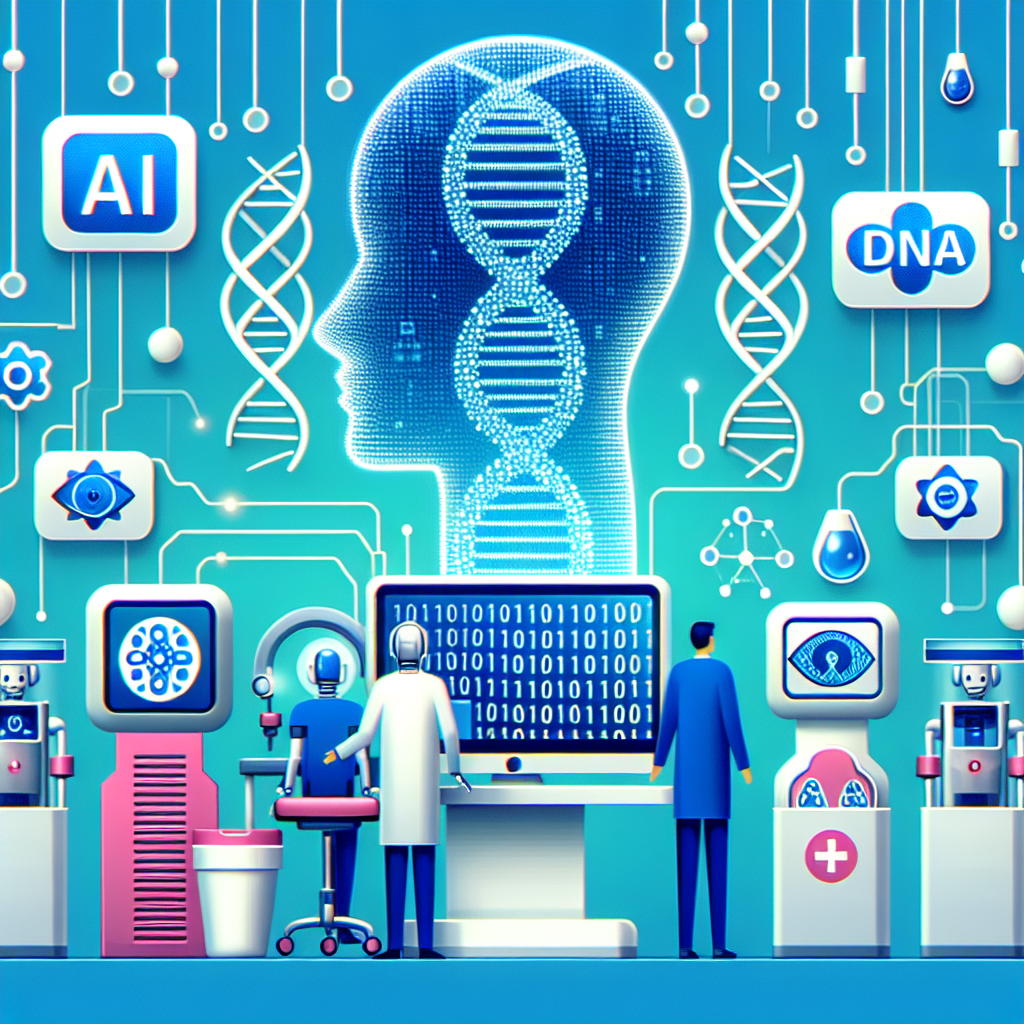Generative AI and Personalized Healthcare: Revolutionizing the Future of Medicine
In recent years, the field of healthcare has seen tremendous advancements thanks to the integration of artificial intelligence (AI) technologies. One area that has shown great promise is the use of generative AI in personalized healthcare. Generative AI refers to a type of machine learning technology that can create new data or content based on existing examples. In the realm of healthcare, this technology has the potential to revolutionize the way we diagnose and treat patients.
Personalized healthcare, also known as precision medicine, is an approach to medical treatment that takes into account individual variability in genes, environment, and lifestyle for each person. By leveraging generative AI, healthcare providers can create highly personalized treatment plans that are tailored to each patient’s unique needs and characteristics.
How does generative AI work in personalized healthcare?
Generative AI works by analyzing large amounts of data, such as patient medical records, genetic information, and clinical trial data. The AI system then uses this data to generate new insights and predictions about individual patients. For example, generative AI can be used to predict the likelihood of a patient developing a certain disease based on their genetic profile and lifestyle factors. This information can then be used to create personalized prevention strategies or treatment plans.
Generative AI can also be used to create personalized drug therapies. By analyzing a patient’s genetic makeup and medical history, AI algorithms can identify the most effective drug combinations for a particular individual. This can help reduce the risk of adverse drug reactions and improve patient outcomes.
Another application of generative AI in personalized healthcare is in medical imaging. AI algorithms can analyze medical images, such as X-rays and MRIs, to detect subtle abnormalities that may be missed by human radiologists. This can help diagnose diseases at an earlier stage and improve treatment outcomes.
What are the benefits of generative AI in personalized healthcare?
There are several benefits to using generative AI in personalized healthcare. One of the main advantages is the ability to create highly tailored treatment plans for individual patients. By analyzing a patient’s unique characteristics, generative AI can identify the most effective interventions that are likely to yield the best outcomes.
Generative AI can also help healthcare providers make more accurate diagnoses. By analyzing large amounts of data, AI algorithms can identify patterns and correlations that may not be apparent to human clinicians. This can help reduce diagnostic errors and improve patient care.
Another benefit of generative AI in personalized healthcare is the potential to improve patient outcomes. By creating personalized treatment plans, healthcare providers can optimize interventions to suit each patient’s needs. This can lead to better outcomes, reduced hospitalizations, and lower healthcare costs in the long run.
What are the challenges of using generative AI in personalized healthcare?
While generative AI holds great promise for personalized healthcare, there are also several challenges that need to be addressed. One of the main challenges is the need for large amounts of high-quality data. Generative AI algorithms require vast quantities of data to train effectively, and obtaining this data can be a time-consuming and costly process.
Another challenge is the interpretability of AI algorithms. Generative AI systems are often seen as “black boxes” that make predictions without providing explanations for their decisions. This lack of transparency can make it difficult for healthcare providers to trust the recommendations generated by AI algorithms.
Privacy and security concerns are also a major challenge when using generative AI in personalized healthcare. Patient data is highly sensitive and must be protected from unauthorized access or misuse. Healthcare providers must take stringent measures to ensure that patient information is kept secure when using AI technologies.
What is the future of generative AI in personalized healthcare?
Despite the challenges, the future of generative AI in personalized healthcare looks promising. As AI technologies continue to advance, we can expect to see even more sophisticated algorithms that can generate highly accurate predictions and recommendations for individual patients.
One exciting area of development is the use of generative AI in drug discovery. By analyzing vast amounts of chemical data, AI algorithms can identify new drug candidates that have the potential to treat a wide range of diseases. This could revolutionize the way new drugs are developed and bring life-saving treatments to market faster.
Another area of growth is the use of generative AI in patient monitoring and disease management. AI algorithms can analyze real-time data from wearable devices and sensors to track patients’ health status and provide early warnings of potential health issues. This can help patients manage chronic conditions more effectively and reduce the need for hospitalization.
In conclusion, generative AI has the potential to transform personalized healthcare by creating highly tailored treatment plans and improving patient outcomes. While there are challenges that need to be addressed, the future looks bright for AI technologies in healthcare. By harnessing the power of generative AI, we can unlock new possibilities for precision medicine and revolutionize the way we deliver healthcare to patients.
FAQs:
Q: Can generative AI be used to predict the effectiveness of specific treatments for individual patients?
A: Yes, generative AI can analyze patient data to predict the effectiveness of specific treatments based on individual characteristics.
Q: How does generative AI improve diagnostic accuracy in personalized healthcare?
A: Generative AI can analyze large amounts of data to identify patterns and correlations that may not be apparent to human clinicians, leading to more accurate diagnoses.
Q: Are there any privacy concerns when using generative AI in personalized healthcare?
A: Yes, patient data is highly sensitive and must be protected from unauthorized access or misuse. Healthcare providers must take stringent measures to ensure data security.
Q: What are the future applications of generative AI in personalized healthcare?
A: The future of generative AI in personalized healthcare includes drug discovery, patient monitoring, disease management, and more tailored treatment plans for individual patients.

